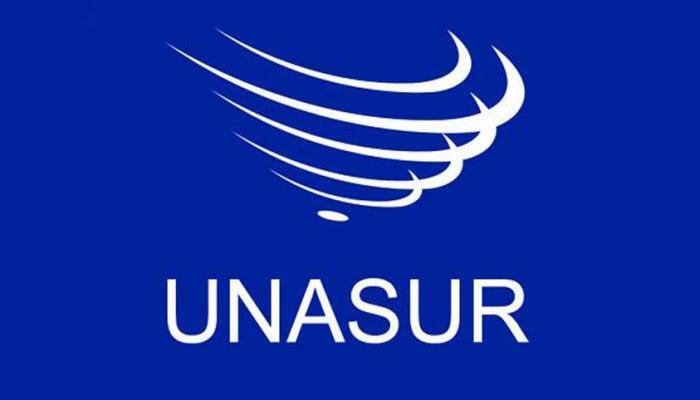Asuncion, April 15 (RHC)-- Paraguay’'s Minister of Foreign Affairs Luis Alberto Castiglioni has announced that his country will officially withdraw from the Constitutional Treaty of the Union of South American Nations, and thereby leave the bloc of UNASUR.
The official request was presented before the Ministry of Foreign Affairs of Ecuador, in its capacity as the depository nation of the international body. With this decision, Paraguay begins the process of dissociating, which, in accordance with the provisions of the Treaty, will end in October 2019.
The government of Mario Abdo is now the third to formalize it withdrawal, joining Colombian President Ivan Duque, who left UNASUR in August 2018, and Ecuador’s Lenin Moreno, who announced he would leave in March 2019. Since April 2018, Argentina, Brazil, Chile and Peru have suspended their participation, leaving Venezuela, Bolivia, Guyana, Suriname and Uruguay as the only active members.
The Paraguayan official said that the decision comes “with the aim of promoting a new process of regional integration,” referring to the right-wing diplomatic group called ProSur created on March 22, 2019, to counteract UNASUR in accordance with U.S.’s interventionist agenda against Venezuela.
Guyanese President David Arthur Granger as well as right-wing presidents Mauricio Macri (Argentina), Jair Bolsonaro (Brazil), Sebastian Piñera (Chile), Ivan Duque (Colombia), Lenin Moreno (Ecuador), Martin Vizcarra (Peru), and Mario Abdo Benitez (Paraguay) signed their allegiance to the new accord, in Santiago de Chile. Delegates from Uruguay, Bolivia, and Suriname strengthened their resolve and support for Venezuelan President Nicolas Maduro'’s legitimate claim to the presidency, refusing to condone the initiative.
Back on March 17, Bolivian Foreign Minister Diego Pary said that UNASUR remains active with its members fully engaged, adding that the Cochamba parliament is prepared and has the necessary infrastructure to make it work (the General Secretariat) here in Bolivia due to Ecuador’s decision to leave.
Later this month, Bolivia will end its Pro Tempore Presidency and it will be Brazil's turn to head the regional body, which worries many as Bolsonaro's government is one of the most outspoken voices against the organization. UNASUR has promoted regional integration since its creation in Brasilia on May 23, 2008, under the leadership of the Bolivarian revolutionary, Hugo Chavez.
Paraguay announces formal withdrawal from UNASUR

Matérias relacionadas
Comentários
Deixe um comentário
Todos os campos são requeridosMais vistas
- Presidente cubano visita municípios da província de Cienfuegos
- Díaz-Canel agradece apoio do corpo diplomático credenciado em Cuba
- Escândalo de criptomoeda envolve Milei
- Conheça Cuba, convite de livros na feira literária
- México abre as portas para médicos de Cuba e aumenta formação de profissionais da saúde

